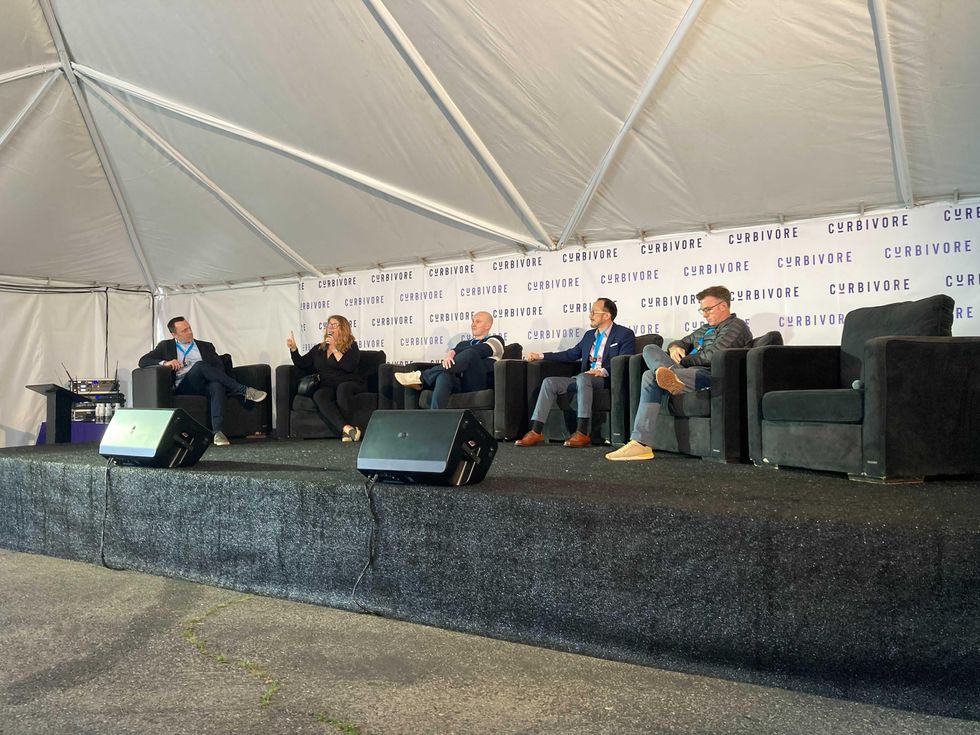Indicator up for dot.LA’s daily publication for the most current news on Southern California’s tech, startup and enterprise cash scene.
It may possibly search like unassuming concrete at to start with glance, but the suppress could be the most important piece of serious estate in Los Angeles.
“There’s gold in those people hills—we gotta monetize the suppress!” is the standard sentiment, in accordance to Seleta Reynolds, common supervisor of the L.A. Section of Transportation. Reynolds joined other panelists at the Curbivore convention in Downtown L.A. on Friday to talk about the opportunities and problems that curbside spaces present for enterprises and municipalities alike.
Reynolds noted that there is a hole amongst the benefit that the control retains for private stakeholders and the capacity of cities like L.A. to enforce policies and rules. By and significant, she included, a lot of organizations never contemplate the control as general public place entitled to what she termed “the general public proper of way.”
“You have providers like UPS and FedEx that contemplate parking tickets component of the price of executing enterprise,” Reynolds mentioned. “We have not figured out possibly a pricing or enforcement system that’s been capable to get us to our intention, which is primarily generating it easier for men and women to get around this city without having having in a car or truck.”
However there are ongoing initiatives to tackle that dynamic. A group of 160 town, business enterprise and tech leaders are creating a Control Data Specification (CDS) program to assist cities far better control their road curbs. The hope is that supply and journey-sharing businesses are equipped employ CDS to make their own suppress management programs.

LADOT normal manager Seleta Reynolds (holding microphone) speaks at the Curbivore Conference in Downtown L.A. on Friday.Photo by Maylin Tu
According to Reynolds, CDS defines the control in digital language, screens curbside players like shipping and delivery and experience-sharing automobiles, and measures and experiences that exercise again to the city.
Just as Santa Monica is piloting a zero-emissions curb administration system in collaboration with the Los Angeles Cleantech Incubator, now LADOT, Automotus and Urban Movement Labs are piloting zero-emissions curbs across wider L.A. Automotus, which uses pc-eyesight technologies to watch electric autos, gasoline-driven cars and trucks and other cars, been given a $4 million grant from the U.S. Section of Vitality last year—the initial these types of grant awarded to a curb management business.
Gene Oh, CEO of microbility management system Tranzito, said that the future of the curb is in networked mobility hubs. Tranzito is doing the job with the metropolis of L.A. to develop neighborhood-based mostly public transit and micromobility hubs that have the possible to turn out to be social spaces for neighbors to connect.
“Ultimately, what we think is that this place is owned by the community, is paid for by tax pounds, and it should really be managed for every person,” Oh explained.
An overarching topic that emerged amongst panelists was the need for collaboration amongst public businesses like LADOT and personal organizations trying to make a profit—and the function that data performs in equally regulation and commerce. Reynolds famous that private companies have no obligation to offer their data to the city.
“I have no regulatory oversight of Uber and Lyft. I have no regulatory oversight of Caviar, Postmates, Amazon, all the rest of them,” she explained. “I consider Amazon has a entire digital strategy of the town of Los Angeles, but all of that info is confidential, tribal and personal. So I have none of it, and I do not have a way to force them to give me any of it. So my only way ahead is to come across wins for them, to enforce in which I can and to determine out how I can make it a lot easier for [them].”
From Your Website Posts
Related Content All-around the World wide web

More Stories
General Finance Tips for Better Money Management
The Power of General Knowledge in Success
General Lifestyle Changes for Long-Term Health